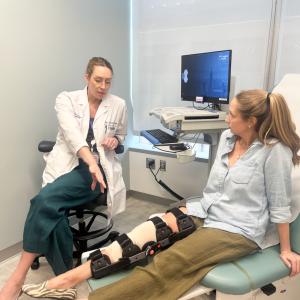Significant Progress Continues in Phased Re-Openings on Main Campus
NYU Langone Medical Center announced that it plans a phased re-opening of its main clinical facility, Tisch Hospital, prior to the end of December and a return of nearly all services to the medical center by the end of January. Additionally, despite significant damage to the Emergency Department, NYU Langone continues to work towards re-opening portions of this function as soon as possible. As part of the phased re-opening effort, approval by the New York State Department of Health (DOH) is required prior to resuming services and we continue to work closely with them throughout this process.
“Our entire community has been working tirelessly to get each of our facilities back up and running, and we will continue to work around the clock to ensure everyone is back on the main campus as soon as possible,” said Robert I. Grossman, MD, dean and CEO, NYU Langone Medical Center. “We continue to make significant progress in our recovery efforts and are striving to provide key inpatient services during the month of December.”
Significant progress in recovery efforts continue with the recent re-opening of many temporarily relocated physician offices in their original locations at the Schwartz Health Care Center (HCC) on the main campus. In addition, the Skirball building (located at 530 First Avenue on the main campus), which houses a variety of physician offices and hundreds of investigators and researchers at the Skirball Institute of Biomolecular Medicine, re-opened on November 16.
NYU Langone’s Hospital for Joint Diseases (HJD), Center for Musculoskeletal Care (CMC), Clinical Cancer Center and other offsite buildings also remain open, many with extended hours of service to ensure all new and current patients have continued access to care.
NYU School of Medicine’s medical education programs have successfully resumed, and students working towards their medical degrees are making continued academic progress. Clinical training for students on clerkships, and residents and fellows has also continued, thanks to the opening of NYU Langone Medical Center and Bellevue ambulatory facilities, as well as the generous support and facilitation of many sister institutions.
“The past month has brought many losses and lessons, but it has also highlighted what I will always remain thankful for—the dedication of the entire NYU Langone community and our determination to prevail,” said Dr. Grossman.

